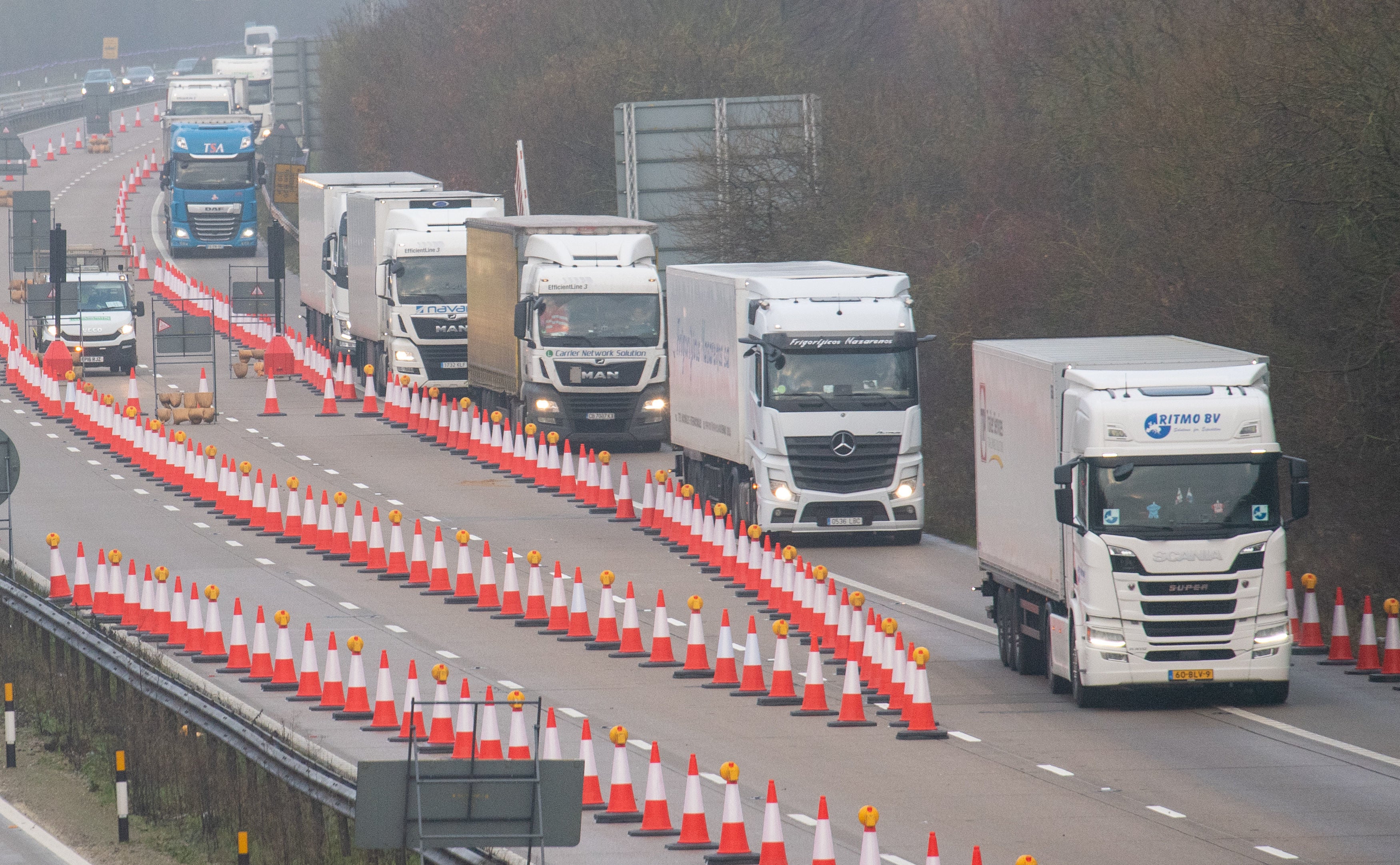Operation Brock powers to manage post-Brexit lorry tailbacks in Kent to be made permanent
Department for Transport says measures will ‘remain temporary and only be used when there is significant risk of delays’

Your support helps us to tell the story
From reproductive rights to climate change to Big Tech, The Independent is on the ground when the story is developing. Whether it's investigating the financials of Elon Musk's pro-Trump PAC or producing our latest documentary, 'The A Word', which shines a light on the American women fighting for reproductive rights, we know how important it is to parse out the facts from the messaging.
At such a critical moment in US history, we need reporters on the ground. Your donation allows us to keep sending journalists to speak to both sides of the story.
The Independent is trusted by Americans across the entire political spectrum. And unlike many other quality news outlets, we choose not to lock Americans out of our reporting and analysis with paywalls. We believe quality journalism should be available to everyone, paid for by those who can afford it.
Your support makes all the difference.Temporary powers designed to help alleviate congestion caused by post-Brexit lorry tailbacks in Kent – codenamed Operation Brock – are to be made permanent, it has emerged.
Under measures designed to ease congestion from traffic heading towards the port of Dover, steel barriers, roadside parking areas and a contraflow system were unveiled in 2019 with the intention of minimising the impact on people travelling within Kent ahead of a threatened no-deal Brexit.
Those emergency traffic management powers were expected to finish in October 2021, but ministers are instead planning to remove the “sunset clause” from the measures in order to make them available indefinitely.
The Department for Transport spokesperson said: “Operation Brock measures will remain temporary and will only be used when there is a significant risk of delays.
“While Operation Brock was originally created to deal with disruption caused by EU exit and in response to the Covid-19 pandemic, removing the sunset clauses from Operation Brock will mean the Kent Resilience Forum (KRF) is better prepared to respond to any type of traffic disruption in the area, not solely related to EU exit, including strikes and severe weather.”
Operation Brock has proved to be highly controversial, with complaints from local residents about disruption caused during work to install the necessary infrastructure.
For example, safely installing the contraflow system involves Highways England closing the M20 overnight, resulting in local diversions.
The contraflow system was reinstalled on the motorway last month to help ease the flow of traffic expected during the school holidays.
Labour MP Jim McMahon, the shadow transport secretary, told The Guardian: “By removing the sunset clauses on Operation Brock it’s an admission that they’ve failed to plan for the outcome of their Brexit negotiations and failed to work with local people over the past 18 months to put in place a better scheme.”
He added: “Operation Brock has proved unpopular locally and slipping out an announcement in the hope that no one notices shows a total disregard for the concerns of local people in Kent.”
Join our commenting forum
Join thought-provoking conversations, follow other Independent readers and see their replies
Comments